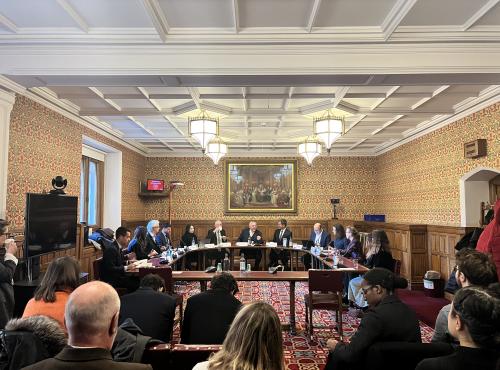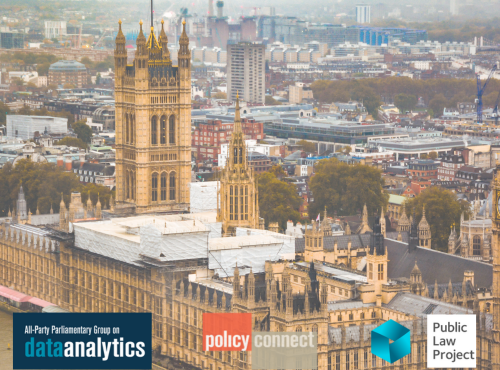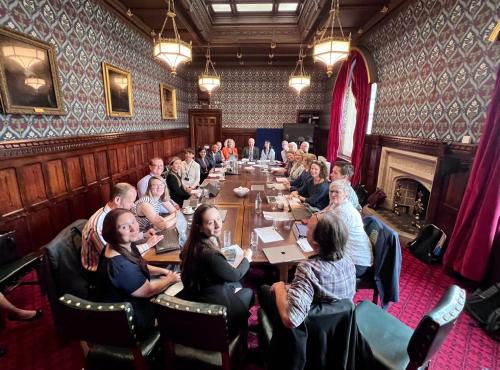How data is responding to COVID-19
The on-going COVID-19 crisis has upended many established economic and social orthodoxies. However, at least one field – data science – has been at the forefront of meeting the national and international response to containing the pandemic. To discuss these questions, the All-Party Parliamentary Group on Data Analytics (APGDA) and All-Party Parliamentary Health Group, supported by the cross-party think-tank, Policy Connect, is hosting an online roundtable to discuss how data has been responding to and learning from the challenges presented by the COVID-19 pandemic.
In the absence of a vaccine, the World Health Organisation’s mantra of “track and trace” has rapidly emerged as one of the most promising potential solutions to helping countries emerge from the unprecedented lockdown conditions and allowing a semblance of reality to return to public life. However, the effectiveness of tracing apps is debated for a host of ethical and scientific reasons, as noted in a recent article by Wired. In addition, a seminar held by the Ada Lovelace Institute in April 2020 noted a number of areas of concern:
- There is an absence of evidence to support the immediate national deployment of symptom tracking applications, digital contact tracing applications and digital immunity certificates.
- Effective deployment of technology to support the transition from the crisis will be contingent on public trust and confidence
- Clear and comprehensive primary legislation should be advanced to regulate data processing in symptom tracking and digital contact tracing applications
- Until a robust and credible means of immunity testing is developed, focus should be on developing a comprehensive strategy around immunity that considers the deep societal implications of any immunity certification regime, rather than on developing digital immunity certificates
- Technical design choices should factor in privacy-by-design and accessibility features and should be buttressed by non-technical measures to account for digital exclusion.
In contrast to these controversial, if innovative schemes, more ‘traditional’ approaches to data and statistics are showing effectiveness away from the headlines. Bodies such as the Office for National Statistics are continuing to use data to develop sophisticated mapping and predictive algorithms, allowing for detailed impressions of local infection rates to be identified.
With these plethora of national and international comparisons, the APGDA’s roundtable will bring together a range of figures from across the data and health sectors to discuss where data is getting things right, getting things wrong, and how it can be used to build the post-COVID ‘new normal’.
The event will take place on Thursday 21st May from 3pm until 5pm and will be chaired by Daniel Zeichner MP, Chair of the APGDA. Speakers include:
- Professor Ross Anderson: Professor of Security Engineering, Computer Laboratory, University of Cambridge
- Dr Natalie Banner: Understanding Patient Data Lead, Wellcome Trust
- Gavin Freeguard: Head of Data and Transprarency, Institute for Government
Topics will include:
- How data can be used to develop better responses to the COVID crisis
- Ways in which healthcare professionals are making use of new, data-driven technologies
- Ethical and moral concerns about the use of invasive datasets in the public sphere.
A full report of the meeting will be taken, and together with a full paper/statement for further consultation.
To attend the event, please contact jack.tindale [at] policyconnect.org.uk (subject: RSVP%3A%20How%20data%20is%20responding%20to%20COVID-19) (Jack Tindale).



